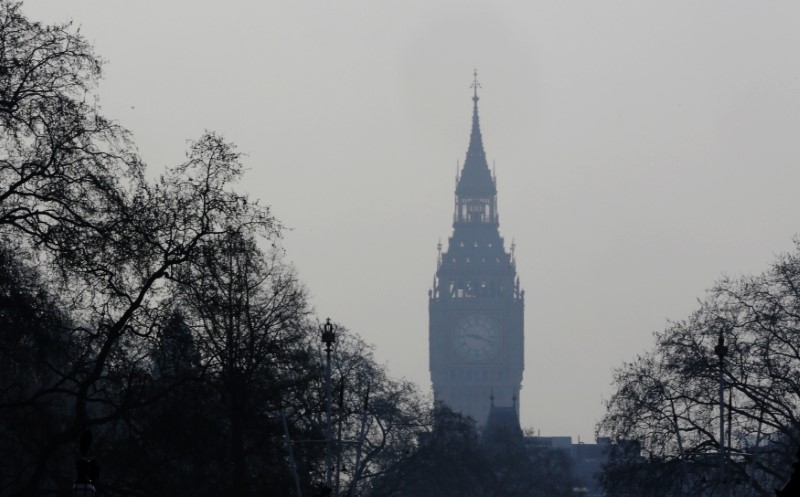By Susanna Twidale
LONDON (Reuters) - Britain's greenhouse gas emissions fell 2.5 percent in 2018, dropping for a sixth straight year but more slowly than before, as record output of renewable power ate away at coal-fired generation, government data showed on Thursday.
Output of the heat-trapping gases in Europe's second-largest emitter behind Germany fell to 449 million tonnes of carbon dioxide equivalent, the Department for Business, Energy and Industrial Strategy (BEIS) said in a preliminary report.
Britain's greenhouse gas emissions have now fallen 43.5 percent since 1990, putting it more than halfway towards meeting a legally binding target to cut them by 2050 to 80 percent below 1990 levels.
But the rate of decline was less than 2017's 3 percent and 6 percent in 2016.
Green groups said Britain was not reducing emissions fast enough to meet pledges made under the international Paris climate agreement.
"If we are to avoid climate chaos, we have to do much more: business as usual means more extreme weather, species extinctions and a grim future for young people," said Mike Childs, head of research at Friends of the Earth.
The pledge by the 2015 Paris climate conference to keep the increase in global average temperatures to below 2 degrees Celsius above pre-industrial levels requires a radical cutback in use of coal and other fossil fuels.
Tens of thousands of school students around the world walked out of classes in a global strike this month to protest against government inaction on climate change.
A breakdown of Britain’s figures showed emissions of carbon dioxide, the main greenhouse gas blamed for climate change, fell 2.4 percent last year to 364.1 million tonnes.
Energy-sector emissions fell 7 percent as coal-fired power production dropped, amid record output from renewables such as wind and solar.
Separate provisional data released by BEIS on Thursday showed coal-fired power stations provided 5 percent of the country’s electricity generation in 2018, down from 6.7 percent a year earlier.
The contribution from gas-fired power plants was slightly lower than in 2017, at 39.4 percent.
Coal-fired power stations emit double the amount of carbon dioxide as gas-fired plants. Britain plans to close all coal-fired power stations by 2025.
The data showed emissions from transport fell 2.6 percent, which BEIS said was likely due to more efficient vehicles.
However, emissions from the residential sector rose 2.8 percent, which BEIS attributed to an increase in gas for home heating.

Around 80 percent of Britain’s homes are warmed using natural gas. A cold snap last year led to sub-zero temperatures and record-high gas prices.